The Unlikely Candidate: A Q&A With Melina Abdullah
The Black Lives Matter co-founder has joined the ticket in Cornel West’s campaign of “truth, justice and love.”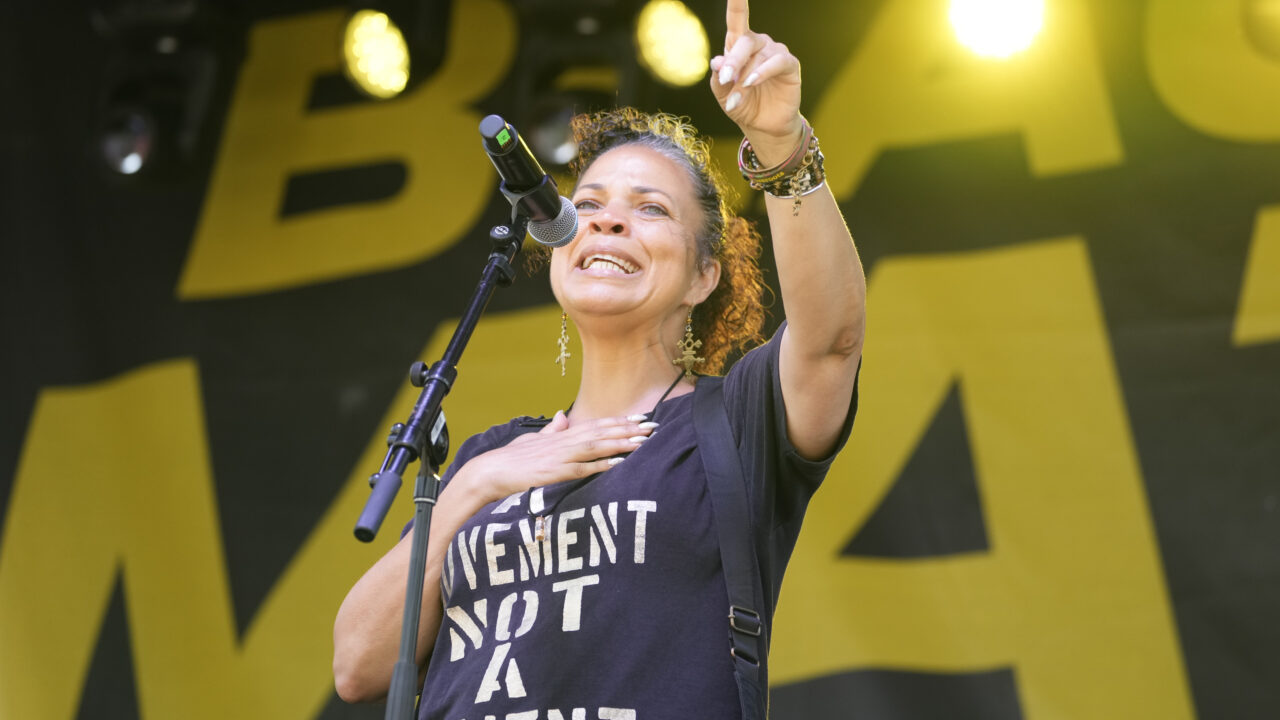 Dr. Melina Abdullah, center, Co-Founder of Black Lives Matter Los Angeles, gets emotional addressing mothers whose children have been killed by police at the "#BLM Turns 10 People's Justice Festival" on Saturday, July 15, 2023, at the Leimert Park neighborhood in Los Angeles. (AP Photo/Damian Dovarganes)
Dr. Melina Abdullah, center, Co-Founder of Black Lives Matter Los Angeles, gets emotional addressing mothers whose children have been killed by police at the "#BLM Turns 10 People's Justice Festival" on Saturday, July 15, 2023, at the Leimert Park neighborhood in Los Angeles. (AP Photo/Damian Dovarganes)
Melina Abdullah never planned to run for office, let alone for the vice presidency of the United States. When the 51-year-old Cal State University professor and co-founder of Black Lives Matter accepted independent presidential candidate Cornel West’s invitation to be his running mate in early April, she had never sought public office of any size. But when the opportunity arose, she did not hesitate. “My heart soared,” she says of West’s offer. Joining forces with West, a major influence in her own development as a scholar and activist, felt like another mode of organizing. “It’s a feeling I haven’t had since I last gave birth,” she says. The all-Black presidential ticket of West/Abdullah is running on a platform that includes justice for Gaza, police abolition and the creation of a U.S. Department of Peace. Although she has become a national figure in anti-racism movements — usually photographed in front of a microphone with a fist thrust in the air, confronting police at a protest or direct action — in conversation Abdullah is often lighthearted, prone to laughing and pointing out the exquisite absurdities of the political landscape. I interviewed her in Los Angeles by phone on April 14.. The following transcript has been edited slightly for clarity and length.
Truthdig: You say you didn’t see it coming — how did this come about?
Melina Abdullah: I never wanted to run for office, never had that ambition. People asked me occasionally but I never thought of running because I’m pretty effective as an outside organizer. I’ve been a supporter of Cornel West since I first met him as an undergrad at Howard University in 1994. He’s been influential in my own work. I would see him and think, “How does he treat everybody like they’re the most important person in the room?” He was on my KBLA radio show recently, and afterward he asked me [to be his] vice presidential running mate. I bring things to the ticket, but I also bring things people could perceive as nonbenefits, [such as] a commitment to free Palestine that predates Oct. 7. I asked him to vet me. I’ve never been a public figure in that way. I have a social media history that I’m not scrubbing. I’m not calculating.
TD: You’ve said you’ll continue working as usual with Black Lives Matter during the presidential campaign.
MA: I’m never stepping back from BLM. If they felt this was a bad move for us, I wouldn’t do it. I only want to bring our message forward. It was important that everyone in BLM-LA and worldwide endorse this. There will be some changes. I won’t be able to be at every Wednesday protest now. I have to step back from my radio programs, “This Is Not A Drill” and “Move the Crowd” because of FCC rules. But the shows will go on. I was always one host of many.
TD: Cornel represents many things, not just politically, but morally. What about his campaign and his candidacy resonates most for you?
“I’m not interested in police reform or training bills. Public safety comes from investing in community services, not policing.”
MA: In the platform, everything ends with the word “justice.” We’re not tethered to policy positions. I come into this work as an abolitionist. I’m not interested in police reform or training bills. Public safety comes from investing in community services, not policing. It’s all about transformative justice. It doesn’t hurt that I’m running with the smartest man in the world. [His 1993 book] “Race Matters” reminds us of the history of race and racism in the world, especially Blackness as an indicator of where we are in terms of power and resources. It’s a call for us to disrupt the situation that puts Black people at the bottom of the list. And it’s digestible. Everyone can read it.
One of my closest friends who isn’t wild about Democrats or the GOP or electoral politics in general said, “I love that brother. He is the Sade of politics!” That brother’s tune never changes, like Sade, it’s been the same show since 1990. It’s not what’s trendy, he’s never going to waiver on where he stands. He’s creative, willing to evolve, he has new albums like Sade, but like her, his core is unmistakable. That’s very important, that he doesn’t sing differently for different people. That’s his courage. He has a vision, an intellect we’ve never seen in any president before, a spirituality and humility, connectedness. Our platform is based on truth, justice and love.
TD: What would a West/Abdullah administration do on its first day?
MA: Stop funding war. Immediately free up trillions to ensure that everyone is housed, has food, clean water. Make sure everyone has what they need. We have to demonstrate that poverty is created and we don’t have to have it. When you pull that veil off, you see things differently. It sounds grandiose, but it frees people. We think it’s acceptable to see skyscrapers and tents at the same time, but it’s an obvious choice. We don’t have to have that. Just move the people into the skyscrapers. Use the money to fund the people.
TD: I have to ask the devil’s advocate question: Is this the right time for this campaign, when it really feels like the country hangs in the balance? Black people especially can’t afford a second MAGA regime.
MA: When is the right time? We’re always being told, “Be quiet, here’s a few crumbs, this is better than the alternative.” We vote and get nothing. People have to earn our vote. The lesser of two evils is still evil. If you have any critique of the status quo at all, if you believe in reparations, housing and health care for all, you’ve got to vote for this ticket. There’s no truth to the idea that a vote for a third-party is a vote for a Republican. I have two kids who’ll be voting for the first time in a presidential election—
TD: Those young first-time voters are a critical demographic this year.
We have to demonstrate that poverty is created and we don’t have to have it. When you pull that veil off, you see things differently.
MA: They are. No way either one of my kids would ever vote for Biden — they’re calling him “Genocide Joe.” No Gen Z’ers I know are lining up to vote for him. What we’re doing is mobilizing people who wouldn’t otherwise vote. We need to look at data around this. There’s no literature to support this idea we’re “peeling” away Democratic support. Gaza is a huge issue that in a way transcends politics. Fifteen-thousand children are dying, the ones we know about. How will the surviving kids grow up, be parents? For young people who are not as cynical as adults, they can’t allow this genocide to happen. They’ll do whatever it takes. And they’re not watching CNN, mainstream news, they’re watching social media, which is why the U.S. wants to ban TikTok. This is a generational mission, which Frantz Fanon described when he said that each generation must discover its mission, fulfill it or betray it. And this connects with the racial justice campaign of BLM, which immediately issued a statement of solidarity with Palestine on Oct. 9 last year. Our young people were the ones who said, we have to write something. Black folk know what it’s like to see families separated and attacked.
TD: What other issues will motivate Black people to vote?
MA: Reparations are a growing issue. When I was in grad school writing my dissertation in the late ’90s, I wanted to focus on reparations. You had N’Cobra and Randall Robinson, but I wound up focusing on something else because reparations seemed generations off. But it wasn’t. In California, Black people are deeply committed to real reparations. Public safety is another issue. The duopoly tries to erase the issue by attacking calls to defund police, because both parties get money from police associations. They buy off politicians. It’s very clear we have to reimagine public safety. Every single piece of data says that the safest communities are the ones with the most resources, not the ones with the most police.
TD: There’s been lots of talk about Black people gravitating towards Trump and possibly swinging the election the wrong way.
MA: This idea that there’s significant Black support of Trump is overstated. The estimates are really small. That said, if we dig down, Black men are more likely to support Trump than Black women. [But] it’s not really Black support for Trump. It’s that Trump is right up to a point — his analysis of Biden and who’s controlling him and the Democrats is probably mostly right. But what’s missing is an analysis of the GOP. If you don’t want to vote for anybody controlled by rich powerful white folks, then vote for us.
TD: The worry is that Black people have become too cynical to vote. Do you believe at this point the vote can make the kind of revolutionary change you and Cornel represent?
MA: Electoral politics is just one tool. Nobody has ever voted themselves into freedom. You have to vote and organize. This is what we owe our ancestors, owe our people. If you vote people in and leave them to their own devices, don’t keep up pressure, it won’t work. It never has.
TD: You’re the first Muslim running on a presidential ticket that’s also all African American. Black people have supported Palestinian rights forever because they see their struggles as similar, as you’ve noted, but that’s really come to the fore.
“Gaza is a huge issue that in a way transcends politics. Fifteen-thousand children are dying, the ones we know about. How will the surviving kids grow up, be parents?”
MA: This is the time for a Muslim candidate, though when Cornel asked me, I didn’t even think about that. Both Cornel’s Christian analysis and faith and my Muslim faith bring us to the same conclusions. That is a powerful statement about what’s driving this campaign, about what we know as spiritual people. What God and Allah tell us what’s right always prioritizes how I’m guided; “Abdullah” means “humble servant.” Dr. West and I share a deep reverence for ancestors. What do we owe the people who worked before us? Fannie Lou Hamer, Charlotta Bass, etc? It’s all about what to owe to our ancestors and to our future. I’m a mom of three kids, I can’t leave them a world that’s like this, where there’s police in schools but not nurses, where we’re spending on war and not on housing. That’s a crime. I can’t sit by and do nothing. This campaign is not just about what I owe, but what we all owe.
TD: Do you see you and Cornel’s candidacy as appealing to a significant number of nonBlack folks?
MA: Absolutely. Justice-loving people across racial lines will and should support us. I’ve already gotten lots of enthusiastic messages from Black and nonBlack people. It’s been a great start. I’ve also gotten very threatening letters. But I’m used to that. It’s easy to find me, send me letters, working here at the university. I’m grateful for the summer break coming up.
TD: In four years, has Joe Biden done anything for Black people?
MA: The things Biden has done have been mostly symbolic. We do have a Black VP, and there’s the Ketanji Brown Jackson appointment to the Supreme Court. We haven’t won anything, but it matters that she’s there. Biden is increasing student debt forgiveness, he’s passed an infrastructure bill. Jobs numbers are up but the employment numbers are manipulated. Most Black people don’t have much to thank Biden for. He double-talks: he says he’s very pro-labor but he’s also pro-corporate. He’s not doing anything for Chris Smalls’ fight against Amazon.
But the bottom line is we can’t sit out the election. Many people have told me they plan to vote but not at the top of the ticket. My prayer is that they see us as people they can vote for, for what they believe in. We’re not going to waiver. We’re going to stand strong in what we feel is right and strong. As candidates we have the opportunity to have conversations about racial betrayal and other difficult topics. Cornel is very good at brothering and sistering everybody. I’m not so good at that [laughs] I’m more like Ahmer Ramman who did this bit some years ago on reverse racism, which is both poignant and hilarious. One of things he’s talking about now is the false choice between Genocide Joe and the cheeseburger-powered, crazy orange man [laughs again]. Let’s just say he encapsulates the situation the way I would.
TD: Vice presidents tend to have a cause they promote. What would yours be?
“Many people have told me they plan to vote but not at the top of the ticket. My prayer is that they see us as people they can vote for, for what they believe in.”
MA: Reimagining public safety that’s not grounded in police but grounded in community. People see police as a very local issue, but the feds have a big role — it funds police. Qualified immunity is a federal issue. One of the many things BLM is doing is working on a federal law around family notification, which is notifying families about relatives and loved ones who’ve died in police custody. Seems like a small thing but it’s important. It’s called “Wakiesha’s law,” for Wakiesha Wilson who died in an L.A. jail cell in 2016 and her family wasn’t told right away.
TD: This will upend your life, right? You teach, you lead a movement and are a single mother of three. I always think of how running for office can be more disruptive for women than it is for men.
MA: We have to be on the road a lot, which is a challenge for a single mom. I had to turn down a fellowship, which I needed. But I have extended family that’s stepping in and allowing me to travel, folks pitching in to make sure it happens. It’s a 50-state strategy, beginning with ballot access in California. As independents, we’re forming the Justice for All party, and we need 73,000 voters to register. We’ve got to get all this done by July.
Ultimately, the success of the campaign depends on people getting involved. We have a huge and enthusiastic volunteer base, and we want to encourage everyone to join. This is for all of us.
Your support matters…Independent journalism is under threat and overshadowed by heavily funded mainstream media.
You can help level the playing field. Become a member.
Your tax-deductible contribution keeps us digging beneath the headlines to give you thought-provoking, investigative reporting and analysis that unearths what's really happening- without compromise.
Give today to support our courageous, independent journalists.
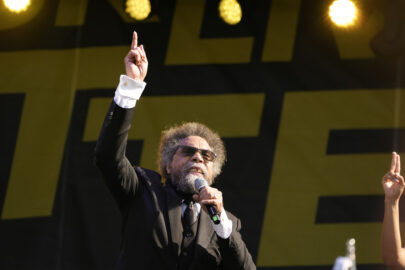
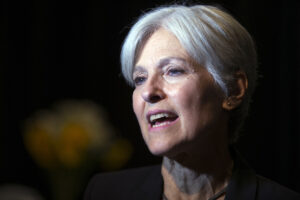
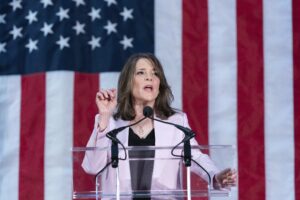
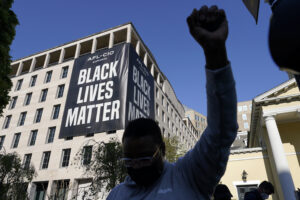
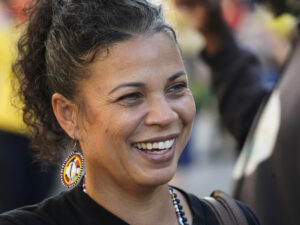
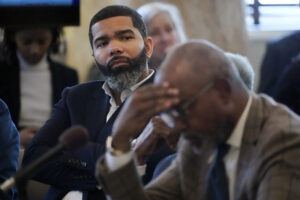
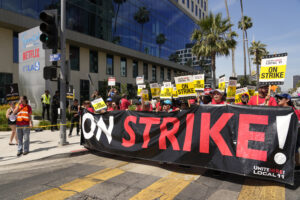
You need to be a supporter to comment.
There are currently no responses to this article.
Be the first to respond.